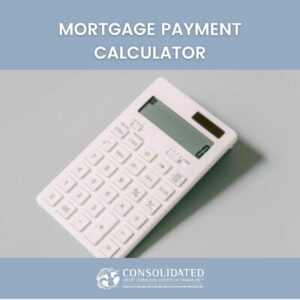Every day, we face some sort of debt. Whether that debt is credit card debt, car loans, mortgages, student loan debt, or a mix of both – debt is part of every Canadian’s life in one way or another. With rising living expenses and job instability due to the COVID-19 pandemic, many Canadians struggle to consistently make all of their debt payments.
One debt solution for people struggling to make their payments is a debt management plan, or debt management program (DMP). Credit counsellors help you craft an individual debt strategy to help you pay off all your eligible debts. The credit counsellor negotiates a payment schedule with lowered interest rates with your creditors so that you will save money by reducing your total monthly payments by up to 30-50%.
You might be wondering: “can you get a mortgage after a debt management plan?” Read on to learn more about mortgages during and after DMPs.
Are you struggling with debt payments? Call us and find out what is your best option.
Do debt management plans hurt credit?
Like all debt solutions, debt management plans impact your credit. However, a DMP’s mark on your credit score is less direct than the mark of a bankruptcy or consumer proposal. Although DMPs are not an insolvency, they restrict your access to credit, as you won’t be approved to use all of your credit cards.
And, by making payments through a DMP, and less access to credit, your credit utilization rate will decrease, which will impact your credit score in a positive way. DMPs are also included on your credit report for at least two years after the date of the program’s completion. Some lenders, including mortgage lenders, might see the DMP on your report and feel weary to lend to you.
Can I get a new mortgage on a debt management plan?
In many scenarios, you can’t get a new mortgage while on a DMP. Your credit counsellor will likely recommend that you don’t take on new debt while you’re under a debt management plan. They might also ask you to sign a statement confirming that you won’t obtain more debt.
Despite the recommendation, however, DMPs aren’t legally binding. So, if you decide to apply for a mortgage you won’t face any legal repercussions. But, your lender might not find your profile all that appealing. Even if they approve your loan, you might have higher interest rates or less favourable loan terms altogether.
If you already have an existing mortgage, you won’t be able to include it on your DMP. In fact, you can’t include any secured debt on your DMP. So, while it will be challenging to secure a new mortgage while you’re under a DMP, you can still contribute to an existing one. Making your monthly mortgage payments will actually be easier under a DMP since your other debt payment amounts will be lower.
When can I buy a house after a debt management plan?
Technically, you can still apply for a mortgage while on a debt management plan. But, you likely won’t achieve the terms you’d like. And, you should ensure your financial situation allows you to make your monthly mortgage payments.
Mortgage lenders can see the mark of a DMP on your credit report when they conduct a credit check. However, the DMP notation only remains on your credit report for two years after the end of your DMP. A lender might offer you a mortgage with less favourable terms, such as a higher interest rate, larger deposit requirement, and shorter term.
If possible, try to wait until 2 years after your DMP completion date. This will enhance your chances of buying a house after a debt management plan.
Speak to a mortgage advisor for more information about specific mortgage options, and shop around. You might have better luck getting mortgage approval with private, specialist lenders, rather than type A lenders, like banks.
Try our mortgage calculator to see how much you can afford in mortgage payments.
How much can I borrow after I’ve had a debt management plan?
After a DMP, the amount of money you can borrow depends on a few factors. Experts recommend spending a bit of time building your credit (if it took a hit) before taking out more loans. Before borrowing money after a DMP, consider the following:
Improve credit
Do the following to improve your credit score first:
- Make your current payments on time
- Limit your credit applications
- Spend more time building a strong credit history
- Wait 2 years so your DMP is removed from your credit file
- Use different kinds of credit
Save up for a larger deposit
Lenders, especially mortgage lenders, might feel more comfortable lending to you if you can save up for a larger down payment or deposit.
Conclusion
Debt management plans help thousands of Canadians each year in managing and paying off their debts. Despite the temporary inconvenience in restricted access to credit, many people find that their credit improves overall after a debt management plan since they pay off many of their debts.
Mortgages are attainable even after bankruptcy, with a bit of planning, discipline, research, and patience. Mortgages after a DMP are also attainable, and the thought of difficulty attaining a mortgage afterward shouldn’t deter you from enrolling in a DMP if your debt situation calls for it.




